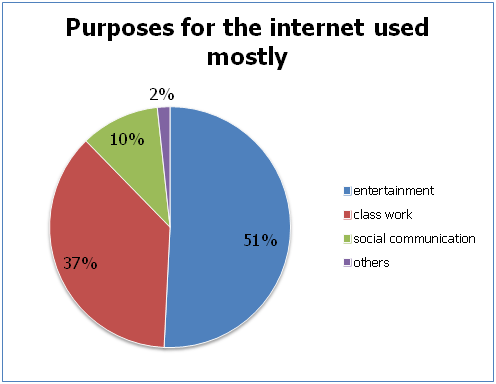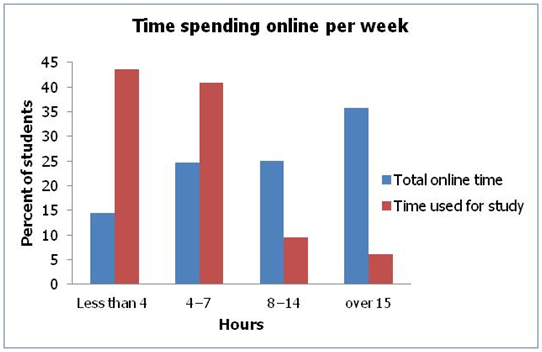


Theme
Social Networking
Category
Resources
INSTITUTION
Faculty of Medicine, Srinakharinwirot University, Sukhumvit 23 Rd, Bangkok 10110, Thailand
The internet is increasingly being used in medical education as it provides instant access to information. Medical students are expected to use the internet to acquire knowledge of medical science and healthcare. However, they may use the internet for non-educational purposes in daily life.
We explored the extent and purpose of internet usage among medical students in pre-clinical years at Srinakharinwirot University, Thailand. A questionnaire-based study was conducted on 179 medical students in 2010.
The students who participated in this study most often used the internet for entertainment (51%), class work (37%), social communication (10%) and other purposes (2%). While majority of students (36%) spent more than 15 hours in a week going online, most students (44%) used less than 4 hours per week for online-learning activities.


The medical students who participated in the present study used the internet to access medical knowledge for preclinical study. However, majority of students went online more frequently for pleasure than educational purposes.
Therefore, we need to attract students to spend more time for online-learning.
We thank all the students who participated in this study. In addition, appreciation is extended to the Faculty of Medicine, Srinakharinwirot University for a research grant.
- Ajuwon GA. Computer and internet use by first year clinical and nursing students in a Nigerian teaching hospital. BMC Medical Informatics and Decision Making 2003; 3:10.
- Romanov K, Aarnio M. A survey of the use of electronic scientific information resources among medical and dental students. BMC Medical Education 2006;6:28.
 Send Email
Send Email